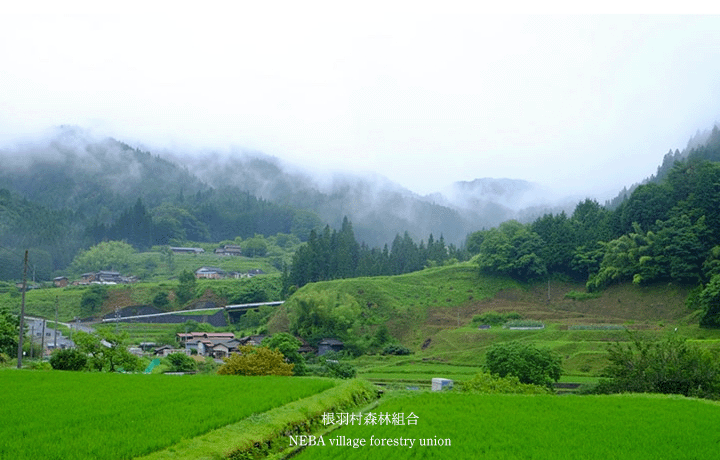NEBA Forestry Union
Basic values and policies for initiatives towards circular economy
We are the water source of the Yahagi River, and the forestry that protects and nurtures the forests in this area will continue as a "business", and protecting the forest will lead to protecting the water source. We are confident that our efforts to protect the public interest functions of forests through cooperation between the upstream and downstream of the Yahagi River will continue forever. In collaboration with many collaborators, we would like to continue to actively work to create a recycling-oriented economy that utilizes local resources.
Market opportunities and our strengths in circular business
Our activities meet international standards in the form of Program for the Endorsement of Forest Certification (PEFC). Maintaining and appropriately promoting contributions to forest resources and the global carbon cycle (carbon cycle), maintaining the health and vitality of forest ecosystems, and maintaining and promoting forest production functions (wood and non-timber). In forest management, maintenance of protective functions and appropriate promotion (especially water and soil). We aim to be a circular economy that meets strict standards such as socio-economic function and sustainability of the condition.
Setting indices/targets
Forestry KPIs are based on forest plans stipulated by the Forest Act. In line with the plan, the people are safe and secure by demonstrating multifaceted functions such as unplanned mass logging, prevention of forest redevelopment, national land conservation, water source cultivation, biodiversity conservation, and global warming prevention. It has become an important entity that supports our lives through various functions, such as the realization of a society where people can live and deeply linked to local economic activities as a source of forest products such as timber.
Implementation system
Many of us villagers are members of the forestry union and are supported by the village office. It is the core industry of the village, and the governance system is clear with the participation of the villagers. However, the working conditions and economic environment of the forestry industry are still severe, and in order to sustain the circular economy, it is necessary to develop human resources through investment and corporate collaboration, and to develop markets through product development.

